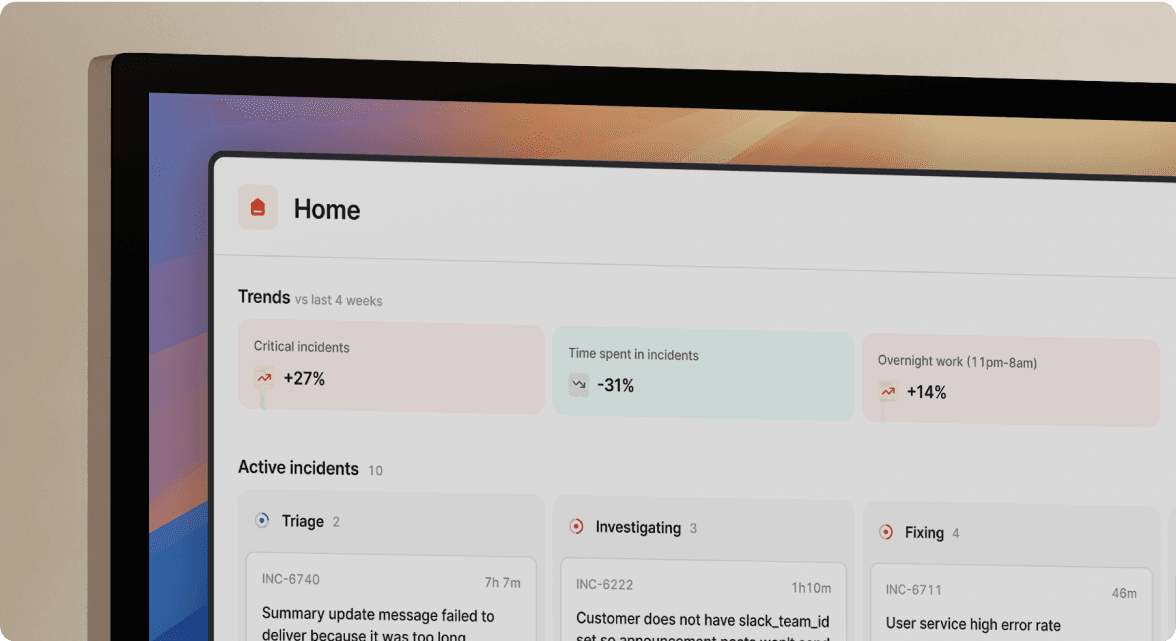Navigating the role of an incident commander

When critical services fail, every second counts. Teams scramble, information floods in, and clarity quickly dissolves into confusion. In these high-pressure moments, a single point of leadership, the incident commander, can mean the difference between a quick recovery and prolonged disruption.
Understanding the incident commander role
An incident commander guides teams through incidents with clear leadership and decisive actions. While technical expertise helps, the key to success is strong leadership and effective communication.
Incident commanders:
- Quickly assess situations to prioritize actions.
- Clearly define roles within the response team to prevent confusion.
- Maintain consistent, transparent communication with all stakeholders.
- Lead post-incident reviews to capture insights and foster continuous improvement.
Key responsibilities
Rapid assessment sets the foundation for effective incident management. Immediately evaluate the scope of the incident using monitoring tools and diagnostics. Clearly delegate tasks to team members, using tools like incident.io to simplify role assignments.
Maintain open and frequent communication. Assign dedicated communicators, such as a business lead, to handle external updates separately from technical troubleshooting. Decisiveness is critical; be ready to escalate or adjust strategies as needed. Regular training and incident simulations help teams practice these vital skills.
Essential tools and practices
Keep up-to-date runbooks to standardize responses. Utilize integrations to provide real-time context directly within your team's primary communication channels. Implement intelligent notification systems to reduce alert fatigue, ensuring urgent alerts receive immediate attention. Track metrics such as mean time to recovery (MTTR) to continuously refine your incident management process.
Final thoughts
Effective incident commanders guide their teams through stressful situations by clearly defining roles, communicating transparently, and staying composed under pressure. To master this role, aspiring incident commanders should prioritize clear communication, master essential incident management tools, and regularly practice through simulations and drills. Developing these leadership skills significantly enhances a team's responsiveness and resilience.

See related articles

Everything you need to know about ITIL 5, AI and incident management
We break down ITIL 5's governance framework and what it means for teams using AI in incident response. For incident management, it addresses questions like: Who's accountable when an AI-suggested remediation backfires? How do you audit AI-generated updates?
 Chris Evans
Chris Evans
DevEx matters for coding agents, too
When AI can scaffold out entire features in seconds and you have multiple agents all working in parallel on different tasks, a ninety-second feedback loop kills your flow state completely. We've recently invested in dramatically speeding up our developer feedback cycles, cutting some by 95% to address this. In this post we’ll share what that journey looked like, why we did it and what it taught us about building for the AI era.
 Rory Bain
Rory Bain
Stop choosing between fast incident response and secure access
incident.io’s new integration with Opal Security delivers automatic, time-bound production access for on-call engineers, eliminating slow approvals and permanent permissions.
 Brian Hanson
Brian HansonSo good, you’ll break things on purpose
Ready for modern incident management? Book a call with one of our experts today.

We’d love to talk to you about
- All-in-one incident management
- Our unmatched speed of deployment
- Why we’re loved by users and easily adopted
- How we work for the whole organization



